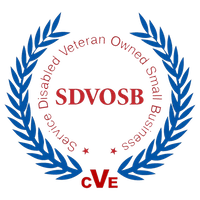The “balancing act” is the difficult act of trying to balance the personal and professional.
How well do you and your team spend their TIME? Do you strike the right balance?
In our “Turning the Battleship” leadership workshop at Nazareth College on 19 November 2014, several attendees asked us, “How do you follow The Big Six Leadership Principles®, ‘Balance the Personal and Professional’?”
“Our work weeks are typically 60 plus hours long and that means family often gets the short end — after all, we must make payroll and grow profits!”
“If we don’t work all the time, our competitors will, and we’ll be out of business!”
The short answer is — it’s not about the number of hours you work, it’s about what you do with your TIME. Level Five leaders are experts at time management. That’s how they find time to support their families and friends, find time to exercise to stay in shape, pursue hobbies, enjoy vacations, support their communities, and at the same time, grow their business.
Think about it…if you work 10 hours a day, your staff is probably working at least 12. When will they have any personal time, much less you? How many good people have you lost in the past year or two? More often than not, good people leave because they cannot sustain the balance between work and family, and the key element is TIME.
General Colin Powell always told us when he was the Chairman of the Joint Chiefs of Staff that we should work smarter, not longer, but even his wisdom did not always sink in. As staff officers in the Pentagon, we were surrounded by bright, talented men and women who too often thought they were measured by how many hours they were on duty. It was almost a badge of honor to be at your desk at 9:00 PM every night. No wonder the favorite saying among us was that working at the Pentagon was like “being one of 25,000 ants floating down the river on a log…each one thinking he was steering the damn thing.”
In order to steer it, you had to be there, right? WRONG. We should have been smarter than that (hindsight is a wonderful thing, isn’t it?).
Today we have the tyranny of information to compound the TIME challenge. We can look at our phones and exchange information almost continuously. We’re trapped in a hand held prison of sorts. People even have pseudo-conversations while looking at their hand held devices. Rude as it is, too many leaders do it. The information monster consumes us. So we work more, and spend less time with our families and personal interests.
We also ignore meeting discipline, so we allow meetings to take place spontaneously, without agendas or time constraints. Suddenly the day is gone, and it’s dark outside…and we’re still at work. Our kids are growing up without us.
So how do we restore balance in this chaos? We take charge of our TIME. Here are some proven techniques to get your personal life back and still grow, make payroll, and beat your competition:
Focus your company’s work with a deliberate strategy.
Our Big Six® leadership principle #1 is “Set the Azimuth”. Drive your company to follow an annual strategic planning system to align and focus everyone’s work. Build the plan around the basics of mission, intent, values and culture. Develop shared goals and develop momentum behind the plan. Strive for unambiguous focus and drive out false urgency — stop doing activities that don’t drive profits. Decentralize and empower your teammates. Without a real strategy, there can be no decentralization. Without decentralization, there can be no balance.
Make a plan for the next day before you go home.
Schedule your meetings, calls and email time. Insure your team knows what is urgent, and what is not. Stay focused on priorities and schedules. Employ the Outlook calendar and share calendars with your leadership team. Plan as far out as you can. Crosstalk.
Delegate authorities and responsibilities to the appropriate level.
Decentralization helps to place responsibility at the appropriate levels. For every action you are personally doing, ask yourself if responsibility would be better assigned to someone else. Drive this thinking down through your organization. Free leaders up to do what leaders should be doing. Develop “wake-up” criteria for your organization — what is important to you to trigger a phone call to you regardless of the time of day. Define what is urgent — safety, loss of life and limb, facility security, equipment downtime, and events that will discredit the company are examples of “wake-up” criteria. Other things matter less; they can be scheduled during the duty day.
Insist on Meeting Discipline.
Every meeting has a published agenda, timeline and assigned responsibilities. Folks come prepared for meetings and are always punctual. If a meeting runs longer than scheduled, walk out of the room when the time is up. Move all of the chairs out of the conference room and have meetings standing up. You’ll see a big reduction in time wasted during the meetings. Move appropriate issues to the “parking lot” for follow-on work. Publish concise minutes of every meeting with responsibilities and suspenses.
Don’t send your teammates emails at night or on weekends.
This is all about respect and honoring your teammates. Make notes on your phone instead to follow up the next work day. If you must speak with your key leaders at night or on weekends, text them and ask them to call you when they are free. This gives them space to watch the rest of the kids’ soccer game or concert. If it is a “wake-up” criterion issue, call them — but, let them know in advance that you will initiate calls ONLY when a “wake-up” criterion is triggered.
Follow your own work schedule rules.
Set the example. If the day ends at 5:00 PM, leave then. If it starts at 8:00AM the next day, show up then. If you prepare in advance, everyone else will too. And they can leave and arrive when you do — knowing they have to be ready when they walk in.
Celebrate families and people.
Know your team members and their families. Post family and recreation pictures on your company website, newsletter and bulletin boards. Celebrate births and marriages, graduations and reunions. Let your team know you really do care that they have rewarding personal lives.
Train your team how to manage TIME.
Use brown bag lunches and mentoring sessions to teach your leaders how to plan their time, and reorient when crises occur so the whole day or week does not become chaotic when a critical issue arises and you address it. Get some help when you need it; there are smart people out there who understand time management. Bring them in to assist you and your team; they will more than earn their fees when you see how productive your team becomes as a result.
You can do this…and restoring the balance will attract and retain the best and brightest. Your family and friends will thank you, too. The time lost with them never comes back; and the memories you make together are truly the richness of our lives.
How well do you balance the “personal and professional”?
See our other blogs about time management, and our other posts about balance.
You can learn more about our leadership ideals in our book “We’re All In.” You can get a copy of the first chapter for free here.





